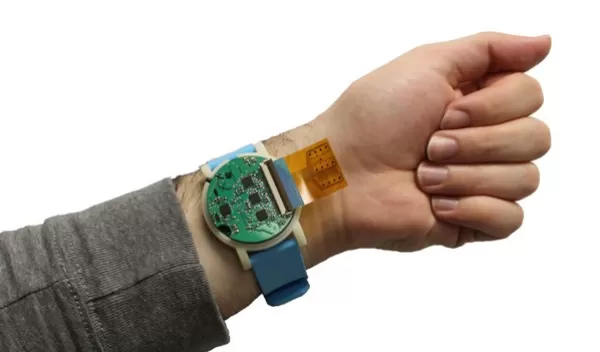
'Wristwatch' monitors body chemistry to boost athletic performance, prevent injury
Researchers have developed a self-powered device the size of a wristwatch that can monitor an individual's body chemistry to help improve athletic performance and identify potential health problems. The device can be used for everything from detecting dehydration to tracking athletic recovery, with applications ranging from military training to competitive sports.
"This technology allows us to test for a wide range of metabolites in almost real-time," says Michael Daniele, co-corresponding author of a paper on the work and an electrical and computer engineer at North Carolina State University.
Metabolites are markers that can be monitored to assess an individual's metabolism. If someone's metabolite levels are outside of normal parameters, the information could let trainers or health professionals know that something's wrong. For athletes, it could also be used to help tailor training efforts to improve physical performance.
"For this proof-of-concept study, we tested sweat from human participants and monitored for glucose, lactate, pH and temperature," Daniele says.
While the National Science Foundation-funded work focused on measuring glucose, lactate and pH, the sensor strip could be customized to monitor for other substances that can be markers for health and athletic performance, such as electrolytes. The sensor, the yellow-brown part seen in the photo, normally lies between the device and the user's skin.
The researchers are now running a study to test the technology when it is being worn under varying conditions. "We want to confirm that it can provide continuous monitoring when in use for an extended period of time," Daniele says.
The paper, Wearable multiplexed biosensor system toward continuous monitoring of metabolites, is published in the journal Biosensors and Bioelectronics.
"We are proud of the research and innovation coming out of our Engineering Research Centers," says Sandra Cruz-Pol, a program director in NSF's Directorate for Engineering. "It has a high impact on people's lives."


